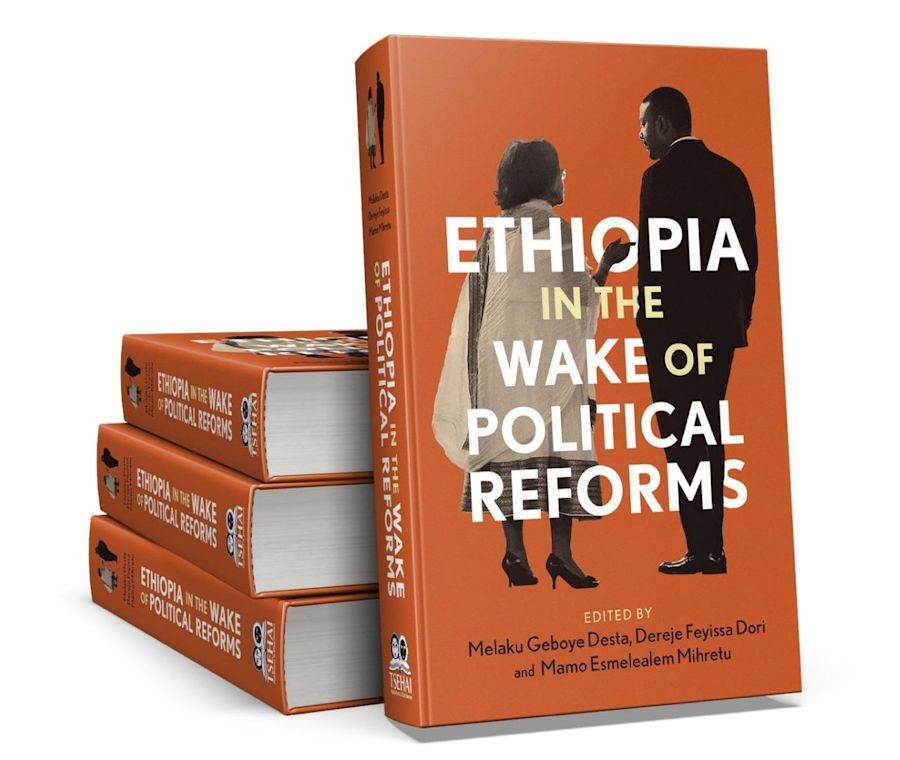
LPI’s experience in an invited policy space: collaboration with the Ethiopia’s Prime Minister’s Office on a book project
Ethiopia has embarked on a comprehensive political reform since April 2018 with a direct implication on the country’s peace and security dynamics. In January 2019, the Prime Minister Office of Ethiopia (PMO) reached out to the Life & Peace Institute (LPI) for support in its book project entitled ‘Ethiopia in the Wake of Reform’. The objective was to reflect on the one-year journey of political change and to take stock of the achievements and challenges focusing on four thematic areas: political reform, economic reform, federalism and nation building, and foreign policy.
After an internal consultative meeting LPI decided to make use of this invited space as part of its efforts to deepen civil society-government partnership at the time when civic space was being expanded in Ethiopia. LPI’s particular contribution to the book project was to engage in it from a peacebuilding angle such as ensuring inclusivity and an autonomous deliberative and safe space for contributors, including those with critical views. As a peacebuilding organisation, LPI expressed its interest to go beyond financial contribution and also input to the framing of issues and soliciting of independent and critical scholars. It worked with the team of the PMO on the book’s initial concept note and strove to ensure that the process would be inclusive of diverse views and perspectives. An effective argument was made to adopt a more empirical than normative approach; one that would allow a critical conversation on the reform process including a reflection on what had worked well and what had not.
Persuading scholars to contribute to a book project in such as this one was not easy. Some of the scholars that LPI reached out to had never had an experience of such direct policy engagement with the government for fear of inadvertently taking side or a political capture by ruling parties which could cost them academic reputation. In fact, some expressed concerns of the project’s overall neutrality (perceived and real). This concern was taken seriously; a great deal of effort went into building the scholars’ confidence to engage and LPI managed to solicit almost half of the contributors to the book thanks to the various measures it took to create a conducive environment for the project.
LPI also suggested an authors-policy makers’ roundtable to not only deliberate and verbally peer-review their respective recommendations but also for the scholars to test the criticality of the space towards which they initially had expressed concern. As such, LPI, in partnership with the Institute of Security Studies (ISS), financially supported the roundtable from 19-20 April 2019. As expected, the roundtable proved to be very effective in building the confidence of the authors and aired issue-based exchange among scholars and practitioners. The lively debate on economic reform and the terms of the Ethio-Eritrean peace agreement were testimony to the much-needed deliberative space that the contributors wanted to see. While the pragmatic reason for the fast-paced liberalisation was critiqued in reference to its social cost, particularly for the poorest section of society already struggling with daunting economic challenges, the Ethio-Eritrean peace agreement was critiqued for lacking transparency and institutionalization while at the same time recognising the importance of peace dividend not only for the two countries but also its huge potential for unlocking regional peace.
Remarkably, only two of the more than twenty contributors who participated in the roundtable dropped out from the book project, despite the initial thick skepticism, while six additional contributions were included by internationally respected scholars after the authors’ roundtable – yet another testimony to the confidence scholars developed towards the space. Some key perspectives were still lacking – especially from certain regions and political leanings as well as gender perspectives on the reform. The latter was partially rectified with one contribution examining the reform from a gender lens while the former proved to be too difficult in the prevailing political climate despite the effort from LPI to include some missing voices.
LPI has also fully engaged in the editorial process to ensure academic rigour and maintain a critical deliberative space. A couple of contributions were rejected not because of political bias but rather for failing to meet academic standards. The book was published in September 2020 and LPI intellectually and financially supported its launch at Addis Ababa University on 22 October 2020. LPI has accompanied the entire journey of the book project; from inception, soliciting contributions, to the editing process as well as to the critical conversation at its launch. As the first book ever written on the ongoing political reform in Ethiopia, it is hoped that the book contributes to knowledge and learning on the process of political transition in general and to evidence-based policy making in particular.
A major learning outcome for LPI is the effectiveness of making use of an invited space from a principled position; one which is informed by the enduring peacebuilding values such as inclusivity and ‘do no harm’. Equally important is the need to foster collaboration among various stakeholders – in this case government, civil society and academia – through a joint engagement with achievements and challenges in the process of political transition. As it turned out, much of the barrier for communication among various stakeholders is perception rather than a reality, as the representation of diverse and critical voices in the book project testifies, despite the concerns expressed during solicitation of contributions. LPI’s Ethiopia Programme will continue to engage with similar initiatives in its upcoming new programme as part of its peacebuilding policy engagement.
Most recent blog posts
2026-01-13
Placing Local Voices at the Centre of Regional Peacekeeping ConversationsA Reflection from the Horn Dialogue Series IV